Every day teens are faced with choices, both big and small, which can heavily impact their lives for better or worse. Some of these decisions have the potential to be destructive to not only a teen’s individual life, but to the lives of their loved ones as well. In order to encourage and teach teens the importance of learning how to make safer and smarter decisions, the organization Students Against Destructive Decisions (SADD) plays a key role.
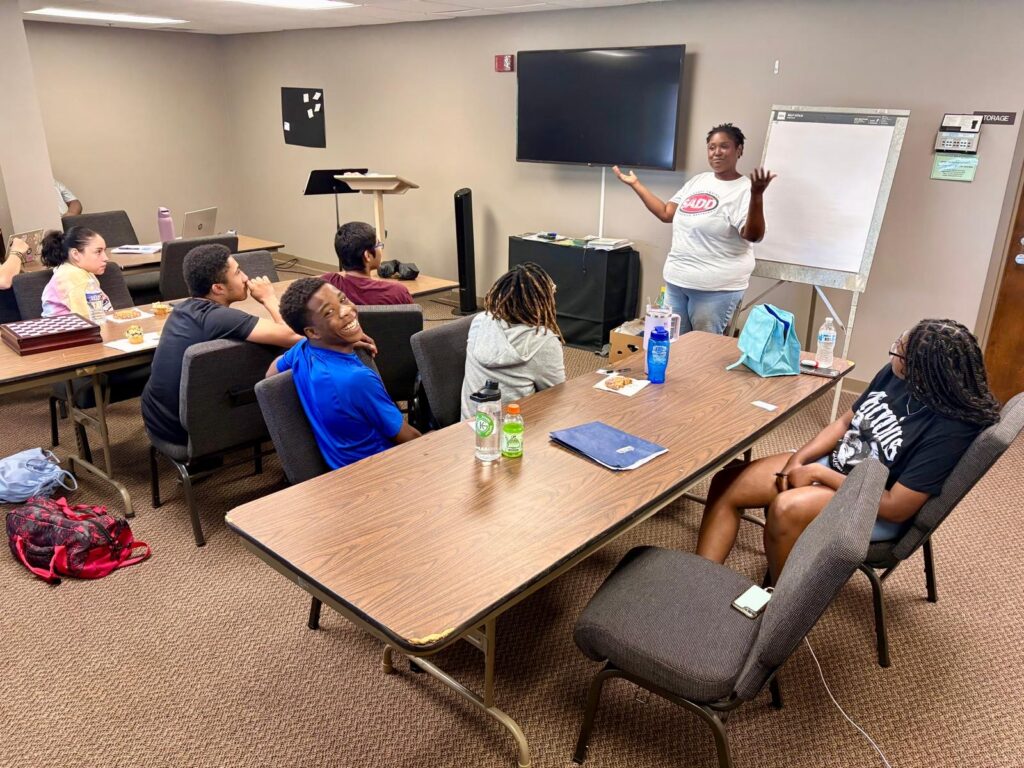
SADD is a national non-profit organization dedicated to emphasizing validation and teaching teens to make safe decisions. Spanning across 25 states, SADD educates students on topics such as drugs, alcohol, mental health, etc., and allows students to stand up and lead change in schools by creating their own SADD clubs.
On Monday, June 16, Elevate students at Grace Klein Community (GKC) participated in an engaging session to learn about the importance of making safe decisions –especially on the road. LaPorsha Walker, the Alabama coordinator for SADD, delivered a fun, yet informative presentation to the Elevate students regarding making safe decisions and mental health.
At the beginning of the session, students were asked to write issues they deal with as teens they feel adults would not understand. Topics ranged from living up to society’s current standards, school being boring, not being understood, and others. The exercise not only brought up the student’s individual perspectives but opened up the importance of mental health.
Walker explained how mental health is being concerned with what is going on with their individual thoughts. By speaking openly about their mental health, teens are creating a space to be comfortable sharing about what is on their minds.
Furthermore, mental health is heavily affected when making decisions, whether safe or destructive. To demonstrate, Walker had the students participate in two mock sobriety test simulations. Students wore impairment googles to experience what it is like to have a blood alcohol level between 0.07-.10. Then, students had to attempt to walk in a straight-line heel to toe.
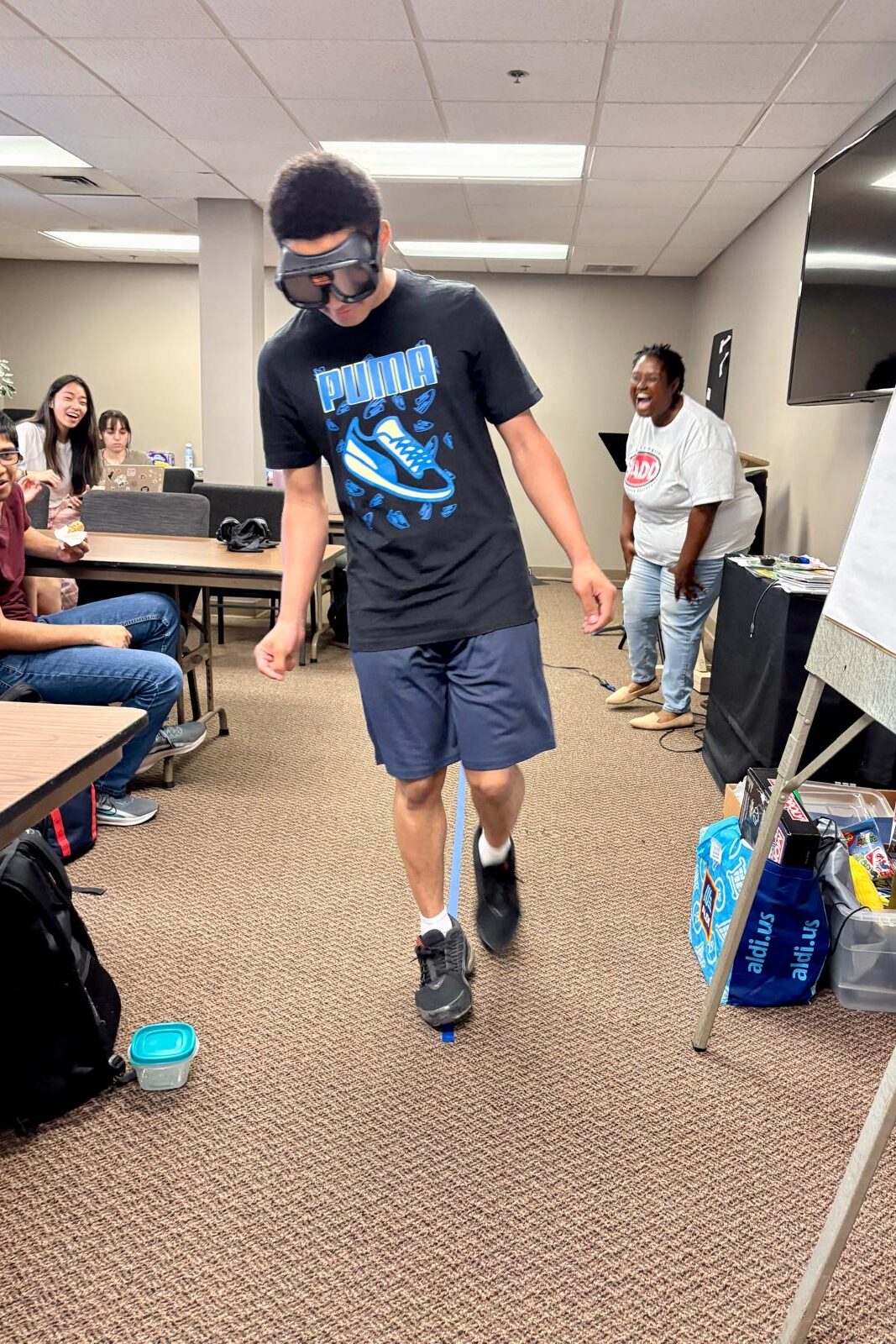
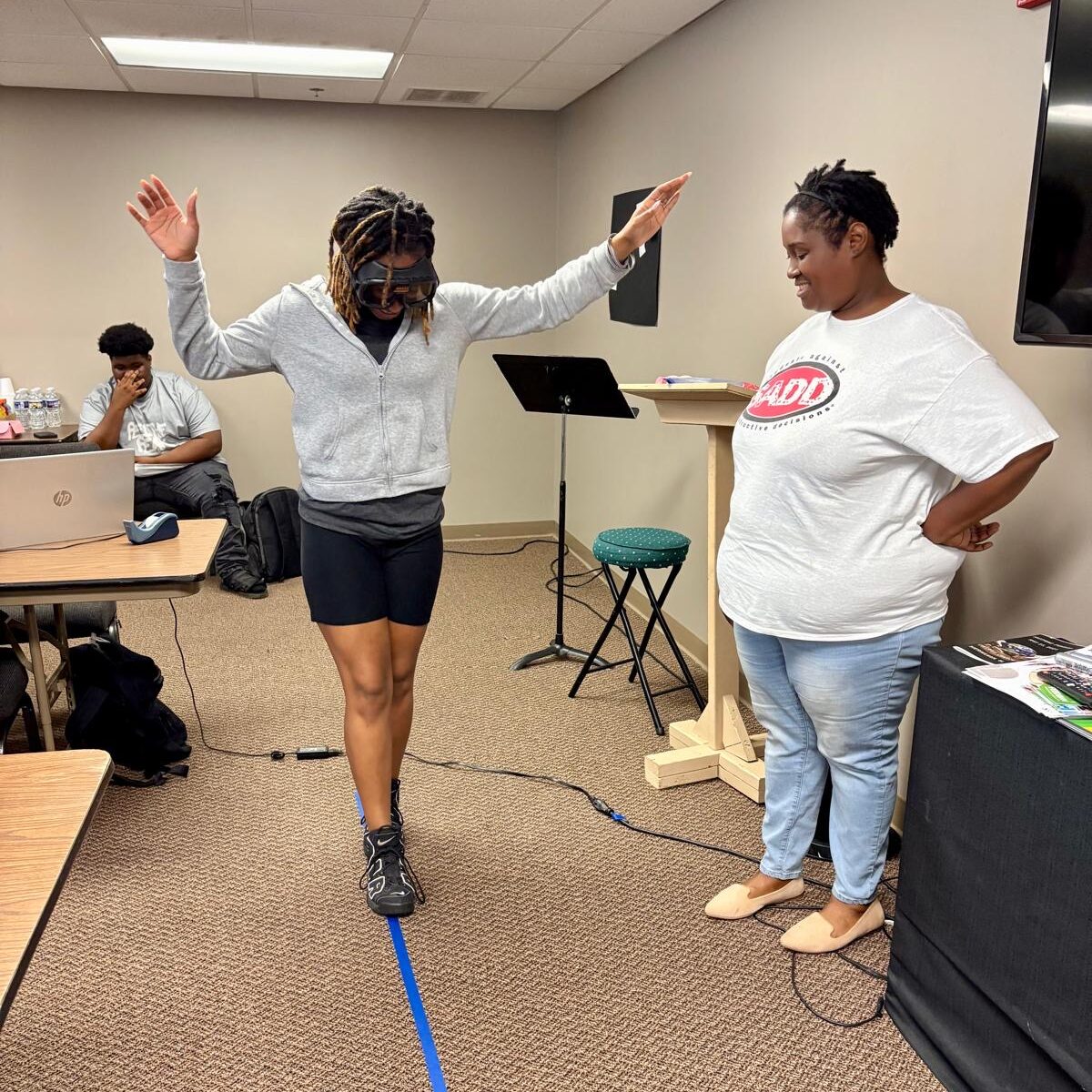
Filled with laughter and smiles, students were shocked at how much the goggles impaired their vision. Students tripped, stumbled, and lost balance as they attempted to walk in a straight line. Afterwards, Walker had the students wear THC and alcohol impairment googles while walking between a line of cones. Again, students laughed as they watched each other stumble and knock over cones. As their vision was completely altered during both simulations, students were exposed to a new perspective on how destructive drugs and alcohol could be, especially while driving.
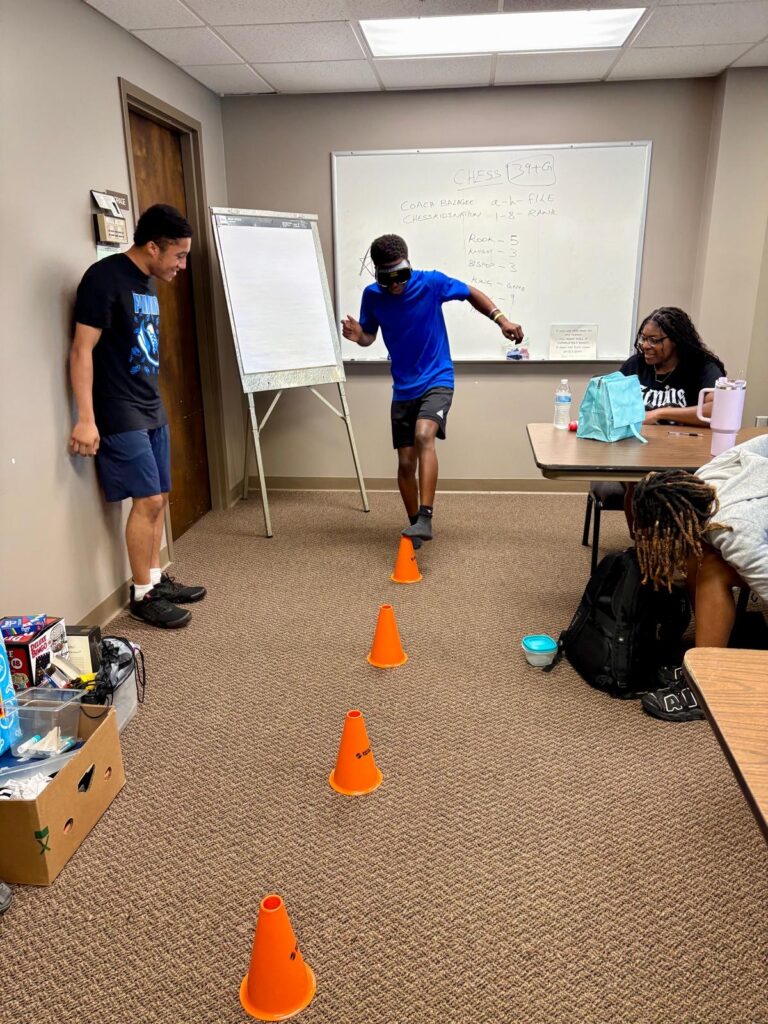
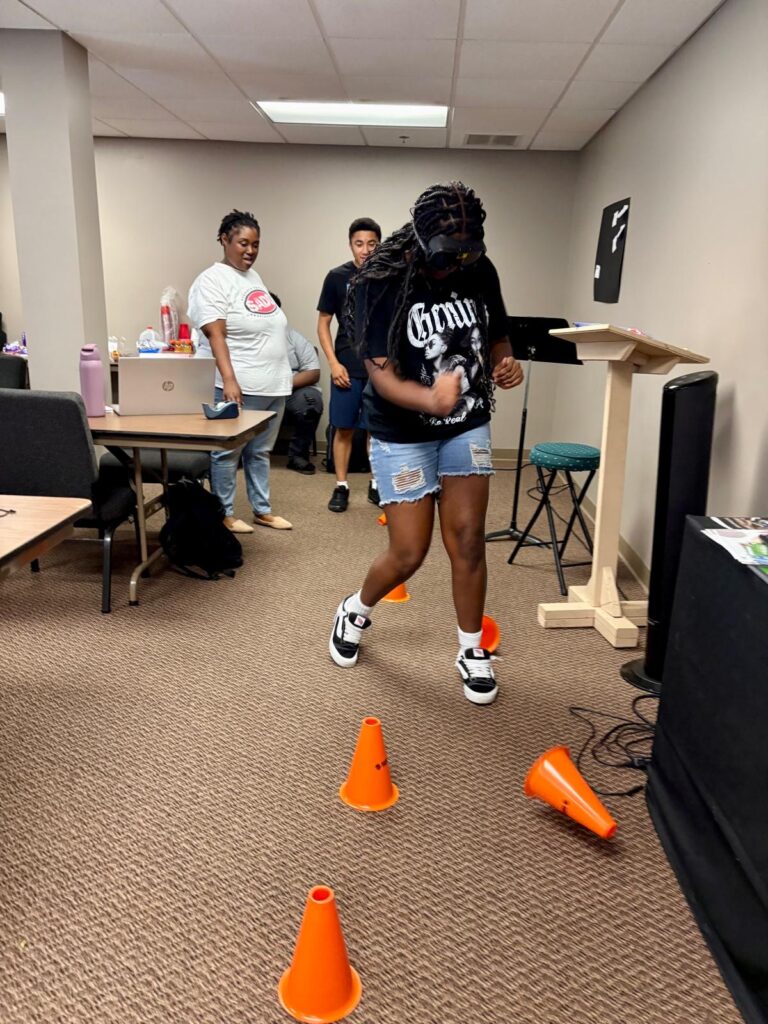
Although being under the influence can heavily influence driving, texting is another destructive decision teens make with tremendous consequences.
Walker handed out cards for students to sign from SADD’s “Text Less Live More” program. By signing the card, students pledged not to be on their phones behind the wheel. In our age of technology and smart phones, the “Text Less Live More” program encourages students to become more present in the moment and interact with others, instead of being on their phones.
Life inside and outside of school can be challenging for teens as unexpected hurdles may be thrown in their direction. As teens navigate through these hurdles, it is important for them to learn how to manage distractions and make wiser decisions. Walker’s presentation demonstrated how destructive drugs, and alcohol can be to mental health as well as behind the wheel.
As the Alabama coordinator for SADD, Walker visits middle and high schools across the state to educate teens about the organization, promote safe decision making, raise awareness to be present in the moment, and advocate for better mental health.
To learn more about SADD and its impact, visit their website at sadd.org.